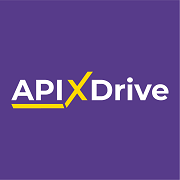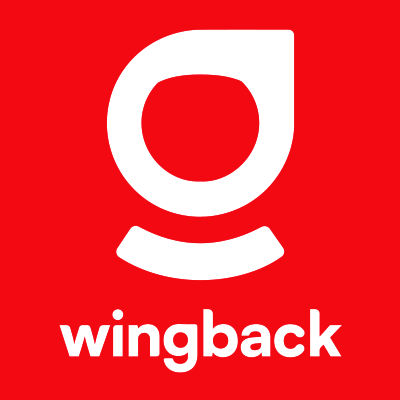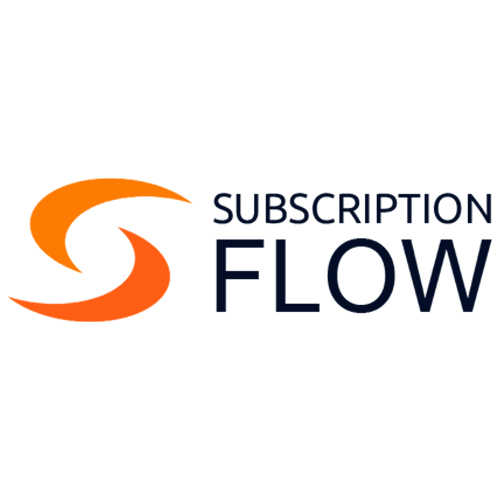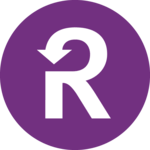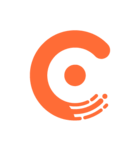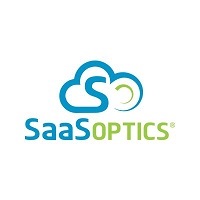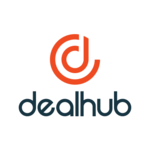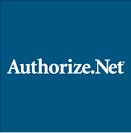Yes, SaaS billing software is available from numerous devices and platforms. As a cloud-based service, it is accessible from any internet-connected device, including computers, tablets, and smartphones, independent of operating system. This enables customers to manage billing and invoicing duties on the go, across multiple platforms and devices, providing ease and flexibility. Additionally, SaaS billing software instantly syncs data across all devices, reducing the need for manual changes.
List of Best SaaS Billing Software
Chargify solution for seamless subscription management and billing. Streamline your invoicing process with our comprehensive tools and effortlessly generate customer invoices. Stay organized and track bills with ease, freeing up your time to focus on...Read More Chargify
Revamp your work processes with ApiX-Drive. Our intuitive web interface seamlessly integrates all your apps and services, increasing efficiency by up to 50%. With its powerful automation capabilities, ApiX-Drive eliminates tedious manual tasks, freei...Read More ApiX-Drive
Wingback is a solution for hybrid pricing plans. Our platform combines usage-based and per-seat options into a single plan, allowing for a simplified pricing strategy. With features such as a user-friendly plan design interface, convenient APIs, and...Read More Wingback
Rainex Billing solution for simplifying and optimizing subscription payments. Our fully integrated platform allows businesses to effortlessly set up and manage recurring payments, saving valuable time and effort. With Rainexs all-in-one system, you c...Read More Rainex Billing
SaaSBox solution for non-technical entrepreneurs ready to launch their own SaaS product. Our comprehensive platform streamlines everything from custom features to subscription management and user login, leaving you free to focus on growing your busin...Read More SaaSBox
Experience the power of Amberflo solution for implementing usage-based pricing with ease. With seamless usage tracking, flexible pricing plans, and on-demand invoicing based on real-time data, Amberflo simplifies the process for businesses. Its exten...Read More Amberflo
2Checkout - the essential payment gateway solution for your business. Its intuitive interface and sleek design make it the top choice. With support for multiple languages and currencies, it guarantees fraud prevention for reliable transactions. Its s...Read More 2Checkout
SubscriptionFlow is a cloud-based subscription management software solution for businesses of all sizes. Our comprehensive platform streamlines all aspects of your business, from billing and payment processing to optimizing revenue growth. Say goodby...Read More SubscriptionFlow
Experience the power of Ordway is a billing and revenue automation solution for thriving businesses. Simplify your pricing, invoicing, payment collection, and revenue recognition with this robust platform, eliminating the need for manual tasks. Effor...Read More Ordway
Recurly is solution for maximizing your subscription revenue. With its recurring billing features, it simplifies the process of growing your business. By seamlessly managing subscriptions, this software improves customer engagement and increases rete...Read More Recurly
Zoho Billing is a solution for subscription billing specifically created for smaller enterprises. Simplify the entire subscription process, from customer sign-up to payment handling, with Zoho Billing. Stay on top of your subscription business with t...Read More Zoho Billing
Chargebee is a recurring billing solution designed to simplify subscription management. With our user-friendly platform, you can easily generate timely invoices and say goodbye to complicated account logs. Let Chargebee handle your billing needs so y...Read More Chargebee
Braintree, a leading payment solution powered by PayPal, simplifies the process of accepting and handling payments for your business. With a secure platform, Braintree enables you to securely accept payments in multiple forms and safeguards sensitive...Read More Braintree
Outseta is a online subscription management solution powered by AI technology. Seamlessly process payments and retain customers for the long haul with our user-friendly platform. Customize subscription packages to fit your business needs and say good...Read More Outseta
SaaSOptics is a subscription billing solution for B2B companies. Powered by advanced AI technology, this software delivers real-time data analysis and reporting of all your current and past subscriptions with a single click. No more cumbersome manual...Read More SaaSOptics
DealHub is solution for streamlining document creation and increasing productivity. With its compatibility on various devices including desktops, mobiles, and tablets, it has gained immense popularity among satisfied users globally. Embrace DealHub a...Read More DealHub
Authorize.Net is a trusted and efficient virtual payment software designed to streamline the acceptance of credit card payments. Utilizing a card reader, it seamlessly transforms your computer or mobile device into a secure point of sale system. You...Read More Authorize.Net
Learn More About SaaS Billing Software
- What Is SaaS Billing Software?
- What Are The Recent Trends In SaaS Billing Software?
- Benefits Of Using SaaS Billing Software
- Important Factors To Consider While Purchasing SaaS Billing Software?
- What Are The Key Features To Look For In SaaS Billing Software?
- Why Do Businesses Need SaaS Billing Software?
- How Much Time Is Required To Implement SaaS Billing Software?
- What Is The Level Of Customization Available In SaaS Billing Software?
- Which Industries Can Benefit The Most From SaaS Billing Software?
- Conclusion
What Is SaaS Billing Software?
SaaS (Software as a Service) billing software is a cloud-based application that helps organizations automate their invoicing and subscription management processes. It enables businesses to effortlessly generate and send invoices, track payments, and manage client subscriptions via a centralized platform. This software is perfect for businesses that provide subscription-based products or services, such as software companies, membership groups, and eCommerce stores.
One of the primary benefits of utilizing SaaS billing software is its efficiency. Businesses can save time and resources by automating repetitive operations like invoicing and subscription management. This also helps to decrease the possibility of human error while ensuring accurate and timely billing. Another significant advantage of SaaS billing software is its scalability.
As businesses expand and add clients, the software can simply handle a huge number of subscriptions and automatically modify pricing and billing. This makes it an affordable choice for organizations of all sizes. Furthermore, SaaS billing software is frequently integrated with other tools and systems, such as CRM software and payment gateways, to simplify the billing process and give a consistent experience for both businesses and customers.
It also provides configurable features, such as personalized invoices, different payment choices, and adjustable subscription plans, to meet the unique requirements of each organization. Furthermore, SaaS billing software offers deep analytics and reporting, enabling organizations to better understand their income and consumer behavior.
This data-driven strategy allows organizations to make more educated decisions and enhance their billing tactics, resulting in increased revenue and customer retention. Overall, SaaS billing software provides a convenient and efficient option for businesses to manage their billing and subscription demands. Its scalability, integration possibilities, and data-driven insights make it an invaluable tool for any firm trying to optimize billing procedures and increase overall productivity.
What Are The Recent Trends In SaaS Billing Software?
"The software-as-a-service (SaaS) sector is rapidly growing and expanding, with organizations of all sizes adopting cloud-based billing solutions. With rising demand, SaaS billing software has witnessed an increase in development and innovation, resulting in a number of recent trends that buyers should be aware of while weighing their alternatives. First, there has been a trend toward more user-friendly and customisable interfaces.
SaaS billing software was once notorious for its complex and difficult-to-use systems, but this is no longer the case. Vendors are now focusing on developing straightforward and streamlined systems that can be quickly customized to meet the unique requirements of various enterprises. Another trend is to include artificial intelligence (AI) and machine learning into billing software.
These technologies are used to automate and streamline procedures like invoice creation and payment reminders. This not only saves organizations time and resources, but also ensures that billing methods are correct and efficient. In addition, data security and compliance are becoming increasingly important in SaaS billing software.
With growing worries about data privacy and legislation like GDPR, customers are searching for solutions that emphasize data protection and include features like encryption and secure data storage. Subscription-based charging is the dominant pricing strategy in the SaaS market. However, there has been an increase in usage-based and consumption-based models, which allow organizations to pay for the services they use rather than a set subscription price.
Finally, there has been a shift toward mobile-friendly SaaS billing solutions. With more people working remotely and on the go, vendors are now providing mobile apps and responsive platforms that allow customers to control billing procedures directly from their smartphones or tablets. As the SaaS business evolves, here are some of the most recent developments that purchasers should consider when selecting a billing software solution. It is critical to thoroughly investigate and evaluate many vendors to select the one that best meets your company's needs and provides the most relevant and up-to-date features."
Benefits Of Using SaaS Billing Software
SaaS (Software as a Service) billing software is a modern and effective option that many firms are using to handle their billing demands. This cloud-based software provides a number of advantages that make it an appealing choice for businesses of all sizes.
Let us take a closer look at the benefits of adopting SaaS billing software.
1. Cost-Effective: One of the primary benefits of using SaaS billing software is its affordability. Unlike traditional billing software, which requires an initial investment in hardware and installation, SaaS billing software is often available on a subscription basis. This implies that firms only pay for what they need, which lowers total costs. Additionally, SaaS billing software eliminates the need for costly IT infrastructure and continuous maintenance, significantly lowering costs.
2. Scalability: SaaS billing software enables firms to scale their billing processes more easily and quickly. Because the program is cloud-based, it can handle an increasing volume of transactions with no further expense. This scalability is especially useful for firms that experience quick growth or seasonal swings in demand.
3. Efficiency: SaaS billing software automates numerous manual billing processes, saving companies time and money. It helps businesses to easily make and send invoices, track payments, and manage client accounts, allowing employees to focus on more vital activities.
4. Accessibility: Because SaaS billing software is cloud-based, it may be accessed via any device with an internet connection. This implies that business owners and staff may handle billing operations from any location and at any time, increasing ease and flexibility.
5. Data Security: SaaS billing software offers a secure environment for organizations to keep sensitive client information. Businesses may be confident that their data is safe and secure from any cyber threats by performing frequent backups and implementing strong security measures.
6. Simple Integration: Most SaaS billing software is designed to work seamlessly with other popular business tools including accounting software, project management software, and CRM systems. This seamless interface guarantees that billing data is simply exchanged, lowering the possibility of errors and increasing overall efficiency.
Important Factors To Consider While Purchasing SaaS Billing Software?
When it comes to choosing SaaS billing software, consumers need examine a number of essential considerations before making a purchase. Pricing, features and functionality, customer support, security, and scalability are all important considerations.
1. Pricing: The cost of SaaS billing software varies widely based on the provider and capabilities offered. Buyers should carefully review price plans to choose which one best suits their budget and business objectives. Some providers have tiered price plans based on consumption or the number of users, while others may charge a flat fee.
2. Features And Functionality: Buyers should carefully consider the features and functionality provided by various SaaS billing software vendors. This involves looking into features like automated invoicing, customisable payment methods, interaction with accounting software, and subscription management. Buyers should also examine which features are critical to their business and prioritize them accordingly.
3. Customer Assistance: Having dependable customer assistance in the event of any problems or questions is critical for a positive experience with SaaS billing software. Buyers should search for providers who give a variety of customer support options, including 24/7 availability, a knowledge base, and a dedicated account manager. Furthermore, reading reviews and asking for recommendations can help you assess the quality of customer service.
4. Security: Because billing software deals with sensitive financial data, purchasers must ensure that the provider has robust security measures in place. This includes data encryption, backups, and compliance with industry standards like PCI-DSS. Buyers should also inquire about the provider's data privacy policies and whether they provide frequent security updates.
5. Scalability: Another significant consideration is the scalability of the SaaS billing software. As a business grows, its billing requirements may vary. Buyers should look for providers who offer flexible plans and can handle their company's expansion without disrupting operations or incurring additional fees.
By carefully evaluating these aspects, buyers can make an informed decision about which SaaS billing software is most suited to their business goals and budget. It is also recommended that you obtain demonstrations or samples of the program to assess its performance and applicability before making a decision. Businesses that use the correct SaaS billing software can streamline their billing procedures and increase efficiency.
What Are The Key Features To Look For In SaaS Billing Software?
When looking for SaaS billing software, customers should consider many essential aspects to discover the greatest fit for their business requirements.
These features not only improve simplicity of use and productivity, but also lead to correct billing, cost savings, and a better customer experience.
1. Scalability: One of the primary advantages of SaaS billing software is its flexibility to grow alongside your organization. Look for a solution that can handle your expanding customer base and changing billing requirements without any restrictions.
2. Automated Invoicing: Manual invoicing is time-consuming and prone to mistakes. A decent SaaS billing software should provide automatic invoicing capabilities to ensure that you and your clients receive timely and correct invoices.
3. Flexible Pricing Plans: Each firm has its own pricing strategy. Look for software that allows you to establish and manage a range of price options, including monthly subscriptions, one-time fees, and usage-based pricing, to meet your clients' needs.
4. Integration Capabilities: SaaS billing software should work effortlessly with other business systems like CRM and accounting software. This eliminates the need for human data entry while ensuring data accuracy across several platforms.
5. Customizable Invoices: Personalized invoices are an excellent approach to stand out and establish company identity. Look for software that lets you personalize your invoice templates with your company's logo, font, and colors.
6. Multiple Payment Gateways: In today's competitive market, providing clients with a variety of payment alternatives is crucial. Make sure your billing software supports different payment gateways, such as credit cards, PayPal, and ACH, to make things easier for your customers.
7. Subscription Management: SaaS billing software should have strong subscription management capabilities to help you manage renewals, upgrades, and cancellations effectively. This ensures a positive customer experience and helps you retain existing consumers.
8. Automatic Dunning: To reduce payment failures, seek for software that supports automatic dunning. This tool sends payment reminders and retry attempts to clients who have failed payments, lowering attrition and increasing revenue.
9. Analytics And Reporting: A decent billing software should have detailed analytics and reporting on key parameters like revenue, attrition rate, and average revenue per user. This information aids in making sound company decisions and enhancing overall performance.
10. Security And Compliance: The program stores sensitive consumer and financial data, thus security is critical. Look for software that complies with industry standards such as PCI-DSS and GDPR to protect the security of your data and your customers' information.
These are some of the most important aspects to consider while looking for SaaS billing software. By keeping these aspects in mind and comparing several solutions, you may choose the ideal software to fit your business needs and streamline your billing procedures.
Why Do Businesses Need SaaS Billing Software?
Businesses use SaaS billing software for a variety of reasons. First, it automates the billing process, making it faster and more precise. Traditional billing techniques are more likely to produce errors and delays, which can have a detrimental influence on a company's cash flow and customer satisfaction. Second, SaaS billing software provides real-time data and analytics, allowing organizations to better understand their revenue streams and client behavior.
This data is critical for making informed company decisions and recognizing opportunities for improvement. Furthermore, SaaS billing software supports flexible and customizable billing methods, such as usage- or subscription-based pricing. This allows firms to better cater to their consumers' individual needs while also adapting to shifting market demands.
Furthermore, SaaS billing software interfaces with other critical business technologies, such as CRM and accounting software, automating the entire sales and billing process and minimizing manual labor for employees. Furthermore, SaaS billing software is highly scalable, which means it can handle an increasing number of clients and transactions while maintaining functionality.
This is especially important for organizations that experience quick growth or seasonal increases in revenue. Finally, SaaS billing software is very secure, with modern encryption and data backup methods in place to protect critical client information and avoid future data breaches. To summarize, SaaS billing software provides several benefits to businesses, such as increased efficiency, better data insights, flexible pricing options, faster operations, scalability, and enhanced security. Investing in reputable SaaS billing software is a wise move for any company trying to optimize its billing process and increase its bottom line.
How Much Time Is Required To Implement SaaS Billing Software?
The time required to adopt SaaS billing software depends on a number of factors, including the complexity of your business demands, the size of your organization, and the level of customization necessary. However, the usual implementation time ranges between a few weeks and a few months. The first step in installing SaaS billing software is to create an account and configure the software to meet your specific business needs.
This can take anything from a few hours to a few days, depending on how many features and modules you need to configure. The next step is to import your customer data into the software. This is usually a simple process that may be finished in a few hours or days, depending on how much data you have. After you've set up your account and imported your data, you'll need to interface the software with your existing systems like CRM, accounting, or inventory management software.
This can take anywhere from a few days to a few weeks, depending on how complex the integration is and how many resources are available. Testing is the final stage before you go live with your SaaS billing software. This entails testing all of the features and modules to confirm that they function properly and are in line with your business requirements. The testing phase might last from a few days to a few weeks, depending on the size of your organisation and the number of users participating.
Overall, the time spent deploying SaaS billing software may appear to be a substantial investment, but the benefits of automating your billing process and reducing human error make it worthwhile. Working closely with your software vendor and having a well-defined implementation plan in place is critical to ensuring a smooth and timely deployment process.
What Is The Level Of Customization Available In SaaS Billing Software?
SaaS billing software offers varied levels of customization to fit the diverse demands of enterprises. The extent of customisation is often determined by the provider's price plan and available features. Basic customization options may include the ability to upload your company logo and adjust the software's color scheme to reflect your brand. This might help to provide a consistent and professional appearance for your billing procedure.
More complex customization features may include the ability to add and delete billing modules, establish bespoke price plans, and generate individual invoices and subscription packages. This level of customisation enables organizations to personalize the program to their own billing requirements and target audience. Furthermore, some SaaS billing software may provide connectivity with other company tools, such as CRM systems or accounting software, resulting in a more streamlined and personalized billing process.
It is crucial to note that, while customization choices might improve the speed and efficacy of your billing process, excessive customisation can be burdensome and time-consuming. As a result, before making a decision, you must carefully consider your business goals as well as the level of customization provided by the program.
Which Industries Can Benefit The Most From SaaS Billing Software?
SaaS billing software is a crucial tool for organizations of all kinds, providing a streamlined and effective way to manage their billing procedures. Certain businesses, however, stand to benefit the most from this technology.
Let's explore, we will look at which industries can benefit the most from deploying SaaS billing software.
1. Subscription-Based Businesses: SaaS billing software is an ideal fit for organizations in industries such as software, media, and e-commerce, which are increasingly adopting subscription-based models. It enables companies to effortlessly manage regular billing cycles, subscription renewals, and provide customizable price plans to their clients.
2. Service-Based Companies: Service-based businesses, such as consulting firms, marketing agencies, and freelancers, can all profit from SaaS billing software. It enables companies to automate their invoicing operations, track billable hours, and manage several clients and projects concurrently.
3. FinTech: As the financial technology industry expands, SaaS billing software is becoming an essential tool for handling financial transactions. It has strong security features and complies with numerous regulations, making it a popular choice among FinTech organizations.
4. Ecommerce: eCommerce firms have extensive billing requirements, including various payment methods, foreign transactions, and recurring orders. SaaS billing software readily connects with eCommerce systems, offering a comprehensive solution for transaction management, invoicing, and payment processing.
5. Education: SaaS billing software can also be useful for educational institutions like colleges and online courses. It allows users to manage their tuition, student fees, and other payments with features such as automated invoice generation, reminders, and reporting.
6. Healthcare: In the healthcare industry, accurate and timely billing are critical. SaaS billing software can assist medical offices, hospitals, and clinics in efficiently managing their billing procedures, insurance claims, and patient payments.
7. Nonprofit Organizations: Non-profit organizations frequently rely on donations and grants to generate cash. SaaS billing software can help organizations streamline donation processing, donor management, and financial reporting, allowing them to focus on their goal.
Conclusion
Finally, selecting the appropriate SaaS billing software for your organization is critical for efficient and optimized billing procedures. SaaS billing software can help you enhance your financial operations by automating invoicing, managing subscriptions, and providing precise pricing. When choosing a SaaS billing software, it is critical to examine your company requirements and match them to the product's features and functionalities.
To ensure a pleasant experience, look for an easy-to-use interface, integration possibilities, and dependable customer support. Additionally, consider the software's scalability; as your firm grows, so will your billing requirements. As a result, choosing a sturdy and versatile SaaS billing software will allow you to respond to changing business needs without disruption.
Furthermore, investigate the software's pricing plans and payment choices. Look for transparent pricing with no hidden costs, and select a payment method that is appropriate for your budget and business style. With the appropriate SaaS billing software, you can streamline your billing procedures, improve the client experience, and increase company profits. We hope this buyer's guide has helped you make an informed selection and propel your business forward.
SaaS Billing Software FAQ's
Can SaaS Billing Software Be Accessed Across Multiple Devices And Platforms?
Is SaaS Billing Software Future-Proof And Adaptable To Emerging Technologies Like AI, Blockchain Or IoT?
SaaS billing software is intended to be future-proof and adaptable to new technologies such as AI, blockchain, and IoT. As organizations expand and new technologies emerge, SaaS Billing Software stays ahead of the competition by constantly upgrading and integrating with these developments.
Its cloud-based infrastructure enables smooth updates and installation of these technologies, ensuring that your billing operations stay effective and streamlined despite the ever-changing technological landscape.
Is There A Free Trial Offered To Assess SaaS Billing Software Before Committing?
Yes, most SaaS billing software vendors provide a free trial period, allowing potential clients to evaluate the program before committing to a subscription. This enables firms to test the software's features and operation and assess whether it satisfies their specific billing requirements. It is recommended that you use the free trial to check that the software is a good fit for your organization before making a cash commitment.
Does SaaS Billing Software Offer Data Security Features And Meet Regulatory Compliance Standards?
Yes, SaaS billing software stresses data security and compliance with regulatory regulations. SaaS billing software safeguards sensitive client information from external threats by utilizing advanced encryption and secure data storage technologies. Furthermore, most SaaS billing software providers adhere to industry standards such as GDPR, CCPA, and PCI-DSS, ensuring that your data is handled and stored in accordance with regulatory requirements.
Can SaaS Billing Software Integrate Seamlessly With Existing Tools And Platforms?
Yes, most SaaS billing software has the capacity to seamlessly interface with existing tools and platforms. This covers widely used CRMs, accounting applications, and payment gateways. This enables for a smooth transition and data synchronization, reducing the need for manual work and eliminating errors. It also allows firms to continue utilizing their favorite tools while taking use of the SaaS billing software's features and automations.


